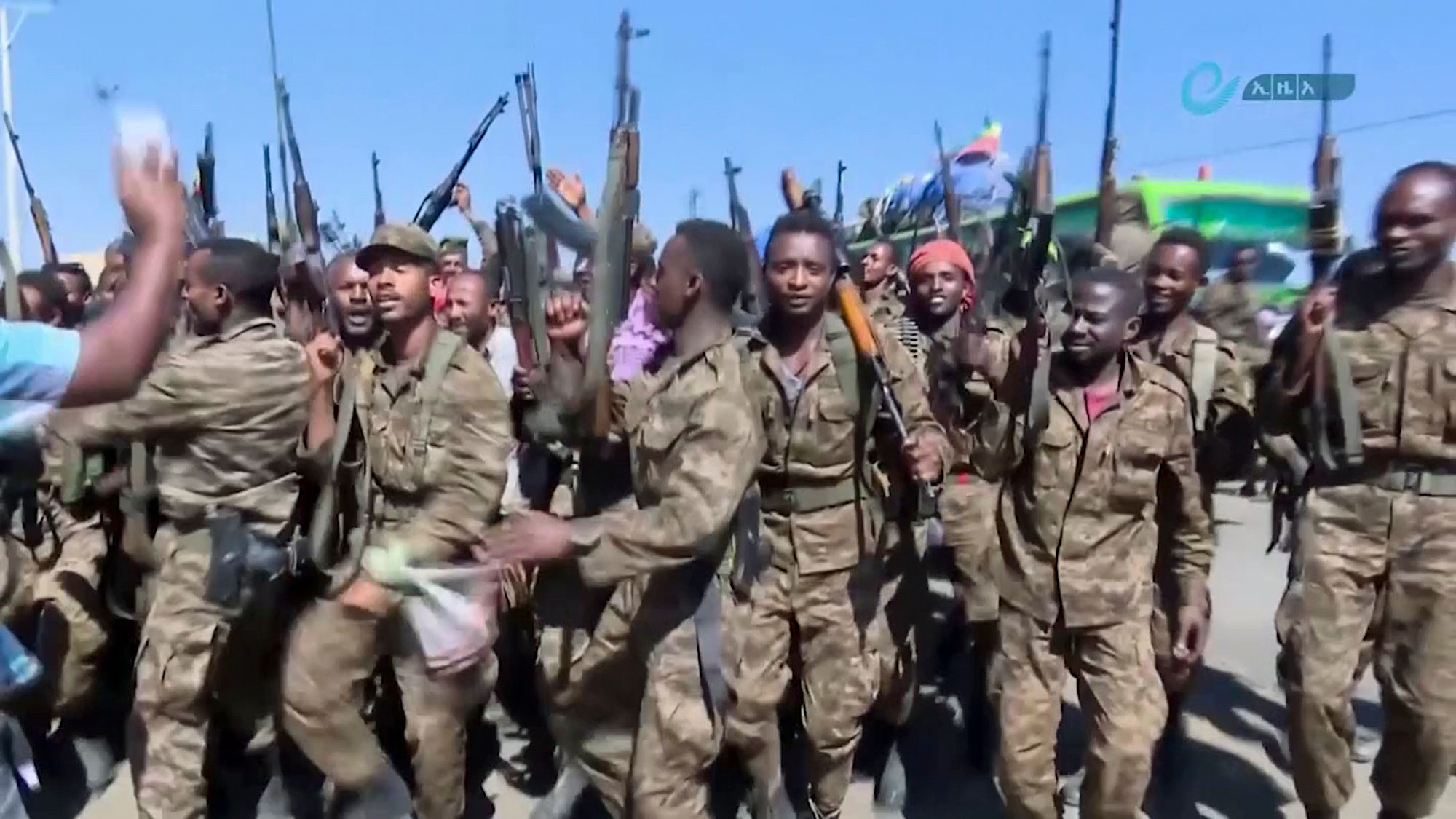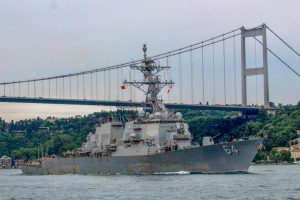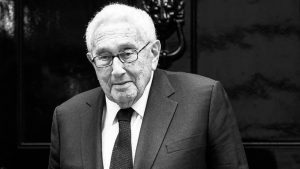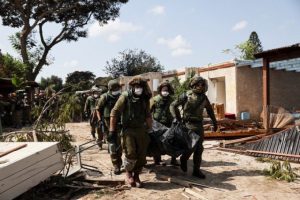Ethiopia’s army said Saturday it was in control of the capital of the Tigray region, and was hunting for its dissident leaders. The announcement came after heavy shelling was reported in Mekele, a city of half a million people, as it braced for a military offensive against Tigray’s ruling party.
“The Ethiopian Defence Force has completely controlled Mekele,” army chief General Berhanu Jula was quoted as saying by Ethiopian Broadcasting Corporation (EBC), adding that 7,000 members of the army’s Northern Command had been freed.
The local government said earlier that heavy shelling had rocked the centre of Mekele, a statement confirmed by two humanitarian officials with staff in the city.
“We’ve been able to enter Mekele city without innocent civilians being targets,” Prime Minister Abiy Ahmed was quoted as saying by the EBC shortly before the army chief’s comments.
Abiy, winner of last year’s Nobel Peace Prize, announced November 4 he had ordered military operations against Tigray’s ruling party, the Tigray People’s Liberation Front (TPLF).
More than three weeks of fierce fighting in the Tigray conflict has left thousands of people dead.
Tens of thousands more have streamed across the border into Sudan, and displacement within Tigray is believed to be widespread.
Abiy had announced Thursday he had ordered a “final” offensive against the Tigray military.
The TPLF was contacted Saturday after the army’s statement but could not be reached immediately.
A communications blackout in Tigray has made it difficult to verify claims about how the fighting is going.
A spokesman for a crisis committee formed in response to hostilities in Tigray did not respond to a request for comment about reported shelling in Mekele, which has already been hit by air strikes.
But Addis Ababa Saturday said the “aerial engagement has been precise and targets only TPLF’s military depot, weaponry and arsenals”, avoiding “civilian facilities”.
The Tigray government accused Abiy of teaming up with Isaias Afwerki, president of neighbouring Eritrea, for the assault on Mekele.
“The Tigray regional state would like it to be known to friends and enemies alike that it will give proportional response to the massacres and property damages being done by those fascists,” it said.
Ethiopia has denied enlisting Eritrean military support against Tigray but has acknowledged using Eritrean territory.
Residents of the border city of Humera in western Tigray told AFP that shells fired from Eritrea hit both residential and commercial structures during fighting earlier this month.
At least one rocket fired from Tigray targeted Eritrea’s capital Asmara on Friday night, regional diplomats told AFP. There were no reports of casualties or damage.
The TPLF claimed responsibility for rockets fired towards Asmara two weeks ago, but there was no immediate claim of responsibility for the latest attack.
The TPLF dominated Ethiopian politics for nearly three decades before Abiy came to power in 2018, and it fought a brutal border war with Eritrea that killed tens of thousands between 1998 and 2000.
Abiy won his Nobel in large part for initiating a rapprochement with Isaias in 2018.
Global concern about the conflict has heightened in recent days with world leaders and human rights groups warning of possible rules of war violations.
The United Nations has spent weeks lobbying — so far unsuccessfully — for full access to Tigray.
Abiy’s office said this week it would open a “humanitarian access route”. Hundreds of UN and international NGO workers are currently in Mekele, but they are grappling with shortages of food, cash and other essentials.
The International Committee of the Red Cross said it had received “1,300 requests from people in Ethiopia and abroad frantically looking to contact their relatives,” adding, “We know this is just the tip of the iceberg.”
Pope Francis on Saturday tweeted for “everyone to pray for #Ethiopia where armed clashes have intensified and are causing a serious humanitarian situation”.
Abiy’s government has said the military campaign in Tigray was triggered by attacks by pro-TPLF forces on federal army camps in Tigray in early November.
Abiy has repeatedly snubbed international calls for a halt to fighting and negotiations with TPLF leaders, saying they need to be disarmed and apprehended.
On Friday, he met with three African ex-leaders — Joaquim Chissano of Mozambique, Ellen Johnson Sirleaf of Liberia and Kgalema Motlanthe of South Africa — dispatched by the African Union as mediators.
An AU statement said Abiy told envoys that military operations in Tigray “would not last long”.







